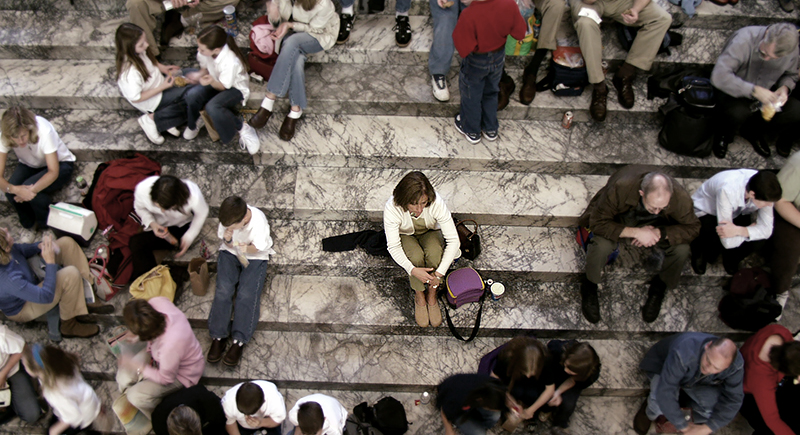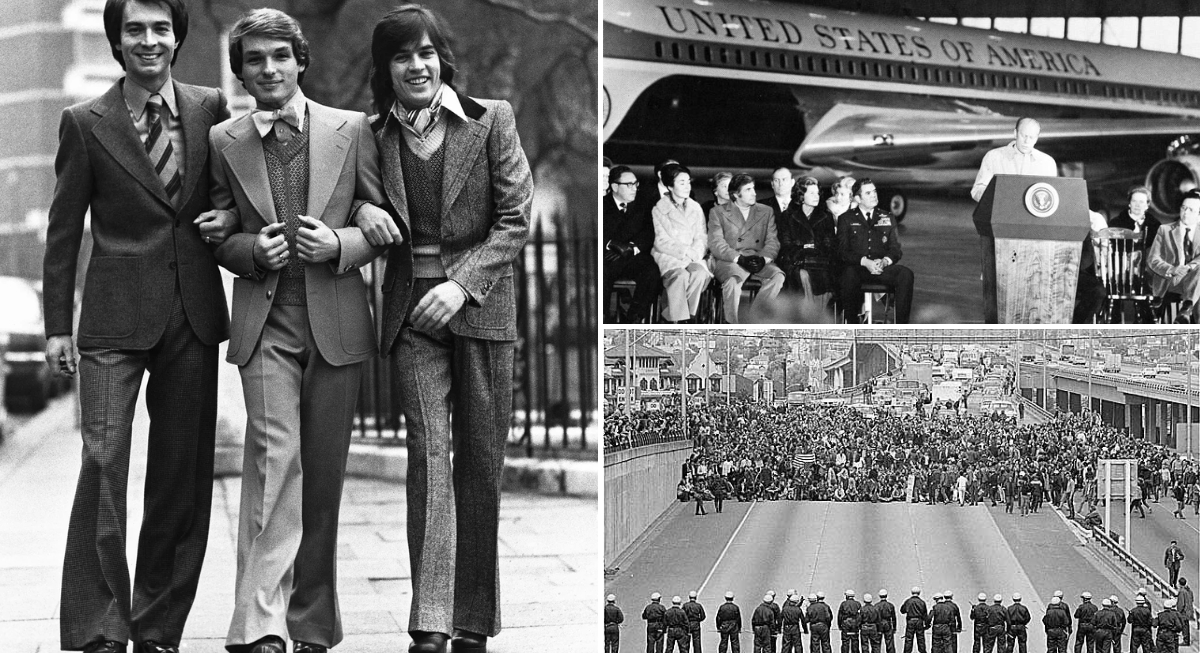It seems like every day, there's another headline about how today's young adults are more stressed, anxious, and downright unhappy compared to their boomer counterparts. But what's causing this shift? We've compiled reasons why this generation is feeling the blues more than ever. Breaking down the factors behind this generational gloom, sky-high rent and social media woes are among them.
Sky-High Rent

Credit: freepik
Finding an affordable place to live feels like winning the lottery. Rent prices have skyrocketed, making it challenging for young adults to find a stable home. Boomers could buy a house for a fraction of today's prices, leaving today's generation feeling financially strapped. It's no wonder saving for a rainy day seems like a distant dream.
Crushing Student Debt

Credit: freepik
Remember when college was affordable? Neither do we. Student loans are like an ever-present shadow, making financial stability a far-off fantasy. Most boomers graduated debt-free, while today’s young adults are drowning in loans. It's hard to feel cheerful when you're paying off education for decades.
The Gig Economy

Credit: freepik
Gone are the days of lifelong careers at a single company. The gig economy means job security is a thing of the past, replaced by temporary gigs and freelance work. This uncertainty leaves many feeling anxious about their future. A steady paycheck and benefits? It must be nice, boomers!
Social Media Pressure

Credit: freepik
Scrolling through Instagram, we see everyone else living their best life. This constant comparison breeds dissatisfaction and insecurity. Boomers didn't have to deal with this curated perfection, allowing them to enjoy life without the endless pressure to keep up. Sometimes, ignorance truly is bliss.
Environmental Anxiety

Credit: freepik
Climate change is an ever-present threat, and today's young adults are acutely aware of it. The fear of an uncertain future makes it hard to stay positive. Boomers didn't grow up with the same level of environmental dread, allowing for a more carefree existence. It's tough to stay happy when you're worried about the planet.
Information Overload

Credit: freepik
The internet has its perks, but constant access to news and information can be overwhelming. With every scroll, there's another disaster or crisis, leading to heightened anxiety. Boomers could tune out and live more in the moment, free from the relentless information barrage. Sometimes, less really is more.
Unrealistic Expectations

Credit: freepik
Today's generation is bombarded with messages about achieving greatness and living extraordinary lives. This creates a pressure cooker of unrealistic expectations. Boomers had a more grounded view of success, focusing on stability rather than grandeur. Lower expectations might just equal higher happiness.
Declining Mental Health Support

Credit: freepik
Mental health services are struggling to keep up with demand, leaving many without the help they need. Boomers had fewer mental health challenges or at least less awareness, making it easier to stay content. When you can't get the support you need, happiness feels out of reach.
Eroding Work-Life Balance

Credit: freepik
With remote work blurring the lines between home and office, achieving work-life balance is harder than ever. Boomers often had clear boundaries, leaving work at the office and enjoying their free time. Today's generation is always "on," leading to burnout and dissatisfaction.
Political Polarization

Credit: freepik
In today's hyper-polarized world, political tensions are at an all-time high. This constant conflict and division contribute to a pervasive sense of unhappiness. Boomers experienced political strife, too, but today's 24/7 news cycle amplifies the stress. It’s hard to feel happy when the world feels so divided.
Health Concerns

Credit: freepik
With rising healthcare costs and a focus on wellness, today's generation is hyper-aware of their health. This constant vigilance can lead to anxiety and stress about potential illnesses. With fewer health scares and lower costs, Boomers had more peace of mind. Sometimes, ignorance about your health is bliss.
Decline of Community

Credit: iStockphoto
Community ties are weakening, leaving many feeling isolated and lonely. Boomers had stronger social networks and community involvement, fostering a sense of belonging. Often moving for work or study, today's generation struggles to build these connections. Feeling alone is a quick path to unhappiness.
Career Instability

Credit: freepik
Today's job market is far less stable than it was for boomers. Frequent layoffs, company closures, and the rise of automation contribute to a constant sense of career instability. Boomers could rely on long-term employment and pensions, creating a sense of security. It's tough to be happy when your job feels temporary.
Consumer Culture

Credit: freepik
The pressure to buy the latest gadgets, clothes, and experiences is intense. This consumer culture creates a cycle of never-ending desire and dissatisfaction. With simpler lifestyles and fewer choices, Boomers were often more content with what they had. Less can indeed be more when it comes to happiness.
Delayed Milestones

Credit: freepik
Today's generation is hitting life milestones later than boomers did. From getting married to buying a home, these delays can create a sense of being "behind." Boomers followed a more traditional timeline, which brought stability and satisfaction. Feeling perpetually behind can dampen one's happiness.





